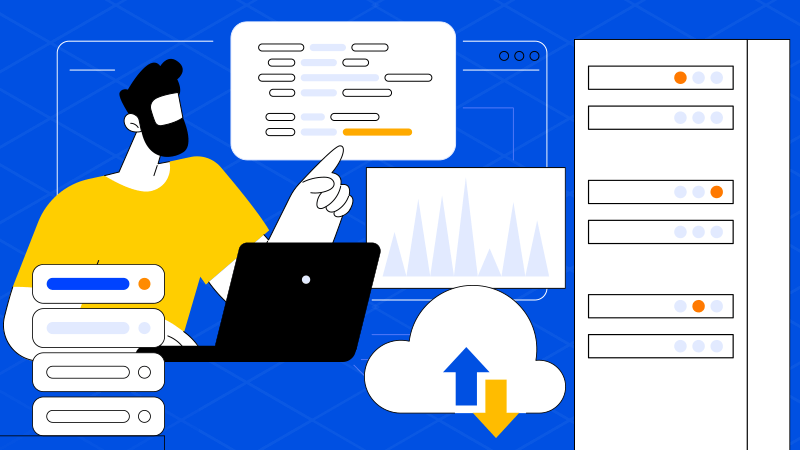How Edge Computing Is Shaping the Future of Web Hosting
In the fast-evolving digital landscape, delivering speedy, reliable, and secure online experiences is no longer a luxury—it’s a necessity. As businesses and consumers demand real-time access to data, traditional web hosting models are being pushed to their limits. Enter edge computing: a distributed technology paradigm that processes data closer to the source, transforming how we think about hosting, data delivery, and IT infrastructure.
What Is Edge Computing? A Fresh Take on Data Processing
Edge computing refers to the practice of bringing computation and data storage closer to the devices and users who generate or consume information. Instead of relying solely on centralized data centers—sometimes continents away—edge computing leverages a network of local servers or “edge nodes,” strategically positioned to minimize the distance data must travel.
This architecture ensures that latency is dramatically reduced, bandwidth usage is optimized, and digital interactions happen in near real-time. Whether it’s powering smart cities, enabling IoT applications, or delivering immersive ecommerce experiences, edge computing is enabling innovation at the speed of now.
Edge Computing vs. Cloud Computing: What’s the Difference?
While both edge computing and cloud computing are essential components of modern IT strategies, their roles and architectures are distinct:
- Cloud computing centralizes resources in massive, often geographically distant data centers. It excels at large-scale processing, deep analytics, and long-term storage.
- Edge computing decentralizes processing, moving it to the network’s periphery—near the data source or end user. This local processing is ideal for latency-sensitive applications, real-time analytics, and environments where bandwidth is limited or unreliable.
In practice, these paradigms often work hand-in-hand. For example, immediate data processing and quick user feedback can happen at the edge, while complex analytics and historical storage remain in the cloud.
Why Edge Computing Matters for Web Hosting
Web hosting has traditionally relied on centralized servers. However, as online interactions grow more complex and user expectations soar, this model can introduce bottlenecks—especially for global audiences or applications that require instant responsiveness.
Edge computing addresses these challenges by:
- Reducing latency: Local data processing means faster page loads and interactions, enhancing user experience and retention.
- Improving security and privacy: Sensitive data can be processed and filtered locally, reducing exposure during transmission and helping businesses address compliance and data sovereignty requirements.
- Enhancing reliability: Decentralized infrastructure ensures that even if one node encounters issues, others can seamlessly continue serving users. This resilience translates to higher uptime and consistent performance.
Use Cases: Real-Time Ecommerce and Beyond
Ecommerce platforms, online gaming, streaming services, and IoT-enabled applications are prime beneficiaries of edge computing. For instance, edge nodes can analyze shopper behavior in real time, update product recommendations dynamically, and ensure inventory data is always accurate—no matter where the customer is located.
Similarly, video streaming platforms leverage edge computing to cache content closer to viewers, minimizing buffering and delivering high-definition video with minimal lag.
Dedicated Server Hosting: The Tried-and-True Alternative
While edge computing is redefining possibilities for ultra-low latency and distributed data processing, dedicated server hosting remains a cornerstone for businesses seeking robust control, performance, and security. Providers likeDataplugs deliver enterprise-grade dedicated servers in Hong Kong and Los Angeles, offering:
- Exclusive resources: All hardware and bandwidth are dedicated to your organization alone, ensuring predictable performance and enhanced data isolation.
- Customization and scalability: Tailor your server environment with advanced security, backup, and storage solutions—scaling effortlessly as your needs evolve.
- Compliance and sovereignty: Host your data in specific regions to comply with local laws (like Hong Kong’s PDPO), with full authority over server configuration and access.
- 24/7 support: Access round-the-clock technical expertise and proactive monitoring, ensuring your web presence stays resilient and responsive.
Edge Computing vs. Dedicated Servers: Which Is Right for You?
The choice between edge computing and dedicated server hosting centers on specific business requirements:
- Edge computing is ideal for applications needing real-time processing, ultra-low latency, and distributed data handling—think IoT, AR/VR, or global ecommerce.
- Dedicated servers excel when you require maximum control, consistent high performance, and strong security for resource-intensive applications, such as secure payment gateways, large-scale ecommerce, or custom software environments.
For many businesses, a hybrid approach—utilizing both edge and centralized resources—delivers the best of both worlds.
Hybrid Approaches: Combining Edge and Dedicated Hosting
Many modern businesses integrate both edge computing and dedicated servers for the best results. By pairing dedicated servers—offering control and compliance—with edge nodes closer to users, companies achieve fast content delivery and reliable security. For instance, an ecommerce site may process transactions on centralized dedicated servers while using edge nodes to speed up page loads worldwide. This hybrid setup enhances performance, improves user experience, and keeps critical data secure. With providers like Dataplugs, you can customize a solution that scales with your needs, blending centralized reliability with distributed speed.
Future-Proof Your Online Presence
As the digital landscape grows more dynamic, choosing the right hosting solution is critical. Edge computing is pushing the boundaries of what’s possible, but dedicated servers remain a rock-solid foundation for mission-critical workloads.
Dataplugs supports businesses at every stage of their digital evolution, from high-performance dedicated servers to expert support and flexible infrastructure solutions. Whether you’re scaling an ecommerce empire or optimizing your existing web applications, a future-proof, responsive, and secure hosting environment is within reach. Transform your web hosting experience—explore how next-generation infrastructure can power your digital ambitions, contact our team via live chat or email at sales@dataplugs.com. Empower your migration journey with the right foundation for digital success.
